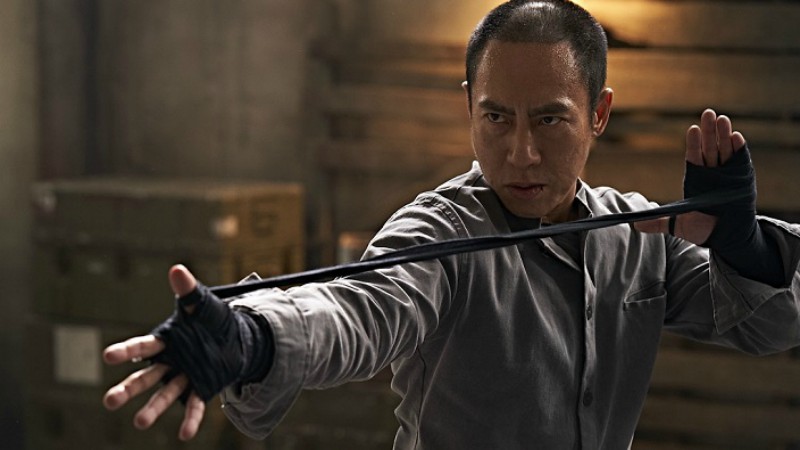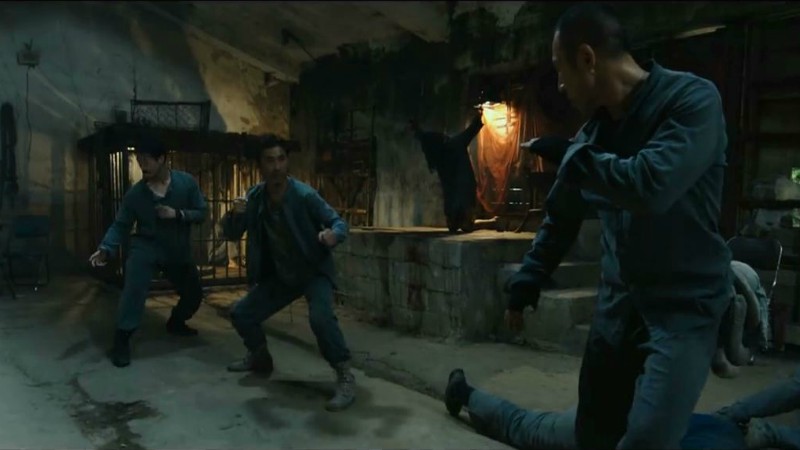




After the release of Crouching Tiger, Hidden Dragon: Sword of Destiny (Yuen Woo-ping) back in 2016, Netflix has produced or distributed just a handful of martial arts-driven action-adventure original films, and fewer still in their country of origin’s native language. Looking through Netflix’s back catalogue of original releases it seems only Timo Tjahjanto’s Indonesian crime-thriller The Night Comes for Us (Timo Tjahjanto, 2018) and, now, Seung-Won Lee’s South Korean action flick Revenger are categorised as both ‘international’ (read ‘foreign-language’) and ‘martial arts’. Though its recent release doubles this narrow on-demand subgenre, Revenger also dilutes its already middling quality.

Lee adopts Tjahjanto’s approach to narrative, using what little there is of a plot as a framework to exhibit highly-choreographed action sequences. Indeed, Lee opens his film in an almost identical manner to Tjahjanto, a mother and daughter at the mercy of criminal goons before they are saved by each film’s respective protagonist. (Come to think of it, the beach on which this opening scene takes place looks suspiciously like that of the opening scene to The Night Comes for Us).
However, the action sequences are progressively undermined by the continual lack of character development: Bruce Khan’s Yul Kim – a former police detective looking to avenge his murdered wife and daughter, introduced wearing a straightjacket and Hannibal Lecter-type bite mask – remains mute and passive for much of the film, his character defined almost entirely by a desire for revenge. This lack of a personality makes it difficult to invest in the outcome of Yul Kim’s many fights, a shame given Khan’s exceptional martial arts skills.
But it’s difficult even to appreciate Khan’s phenomenally-fast handwork and gravity-defying kicks on an aesthetic level given the intermittently shaky camerawork and distracting CG blood splatter. Lee’s camera is repeatedly intrusive, moving to within such an intimate distance of his actors or cutting at certain moments as to miss parts of the action. Even when employing a simple two-shot, Lee finds it necessary to add superfluous zooms every couple of seconds.

With no main character to invest in and the martial arts spectacle often spoiled by stylistic choices, all that’s left of Revenger to engage with is its barebones story – a combination of elements from Kinji Fukasaku’s Battle Royale (2001) and John Carpenter’s Escape from New York (1981) with a supplementary revenge angle. One early scene, in which Yoon Jin-seo’s Maly recognises Yul Kim as the unscrupulous police officer who sent her to the prison island on which they both now find themselves, promises to elevate the narrative beyond mere framework, though any potential future conflict and self-reflection fails to materialise.
Likewise, a post-credits sequence, in which Yul Kim braves an unfinished-CG sandstorm as an incongruously spirited score builds, promises Yul Kim’s return. Given the success of other foreign-language martial arts series like The Raid (Gareth Evans 2011) and Ip Man (Wilson Yip, 2008), a sequel to Revenger isn’t an impossibility. In fact, if Netflix can convince Iko Uwais and Joe Taslim to join Bruce Khan for Revenger 2 (maybe snag Donnie Yen for Revenger 3), they’ll quickly expand their foreign-language action repertoire. Better yet, retcon The Night Comes for Us as a Revenger prequel and Netflix could start their very own on-demand martial arts extended universe – Netflix Revengers Assemble!
Revenger is available on Netflix from Wednesday, January 15th.















